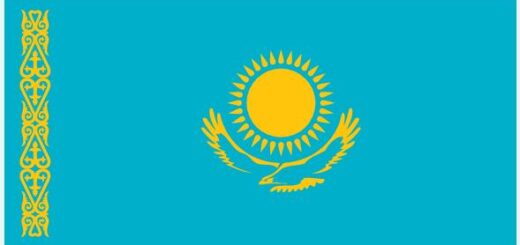Kyrgyzstan Religion
Islam (Sunni) dominates as a religion among Kyrgyz, Uzbek and Tajiks, but the belief is often mixed with traditional local shamanism. Russians and Ukrainians are Russian Orthodox Christians. There are also small groups of Catholics, Protestants and Jews in the country.
Islam reached Kyrgyzstan in the 17th century. Following the Soviet-era atheist policy of 1918–1991, interest in Islam has again increased. Many new mosques have been built, often with financial support from Arab states. Religion has the strongest influence in the south.
Religious fundamentalism has no tradition in Kyrgyzstan, but the extreme Islamist Hizb-ut-Tahrir movement operates in the Fergana Valley in the southwest. Hizb-ut-Tahrir, which is banned in the country, wants to create an Islamic state throughout Central Asia and is particularly strong in neighboring Uzbekistan. Many of the movement’s members have been sentenced to prison and the government has tightened control over the country’s mosques.
During the 2010s, hundreds of Kyrgyz elected to join the extremist group Islamic State (IS) fight for their own caliphate in Syria and Iraq.
According to the Constitution, Kyrgyzstan is a secular state and religious freedom should prevail. In practice, violations of this right have sometimes occurred. All religious groups must be registered with the authorities, and not least so-called neo-Christian communities are reported to have had problems getting their registration approved.
- Countryaah: Population statistics for 2020 and next 30 years in Kyrgyzstan, covering demographics, population graphs, and official data for growth rates, population density, and death rates.
2019
December
Former heads of government are sentenced to prison
December 6
A court in Bishkek sentenced former prime ministers Zhantoro Satibaldiev and Sapar Isakov to long prison sentences for corruption. Isakov faces 15 years in prison, while Satibaldyev is sentenced to 7.5 years. The men are found guilty of corruption in connection with the procurement of construction contracts for the modernization of an electric power plant in Bishkek (see June 2018).
November
Big bum scandal is breeze
November 21st
A Chinese Uighur businessman acts whistleblower and reveals an extensive bribe that causes upwards of a thousand Kyrgyz to take to the streets of Bishkek in protest of the corruption in the state administration. According to the whistleblower, government officials should have received large sums in bribes to ignore the fact that millions of dollars are being smuggled out of the country. At the center of the bribery scandal is a customs official named Rayimbek Matraimov. The whistleblower fled Kyrgyzstan before revealing fears for his life. He was murdered in Istanbul, Turkey on November 10.
August
Atambayev is charged with murder and attempted coup
August 13th
President Atambayev is charged with unlawful possession of a weapon, murder of a policeman and attempting to carry out a coup d’etat. He is also charged with organizing riots and taking hostages. The murder charge concerns a policeman who was killed when security forces faced violent resistance from the president’s supporters in an unsuccessful attempt to arrest Atambayev in his home (see August 2019). At the same time, six police officers must have been taken hostage by Atambayev’s people, some 80 people must have been injured and more than 50 had to be taken to hospital.
Atambayev grips
August 8th
In a second effort, security forces seize President Atambayev, who is being held in custody until August 26. Atambayev is charged with money laundering, corruption, for 2013 having illegally released a criminal leader, and for illegally obtaining land ownership. The president denies the allegations he believes are politically motivated to harm him in the power struggle with Jeenbekov.
President Atambayev’s residence is stormed
August 7th
Security forces storm President Atambayev’s home on the outskirts of Bishkek in an unsuccessful attempt to arrest him. A soldier is shot dead when the force encounters armed resistance from Atambayev’s followers. Twenty civilians and 15 soldiers are taken to hospitals with injuries, according to the Ministry of Health. When the security forces leave the scene, Atambayev’s supporters block the way to the president’s residence. Atambayev is suspected of corruption, but has three times refused to appear for police interrogation. The power struggle between Atambayev and President Jeenbekov seems fierce and some observers are now warning that mutual fighting may break out in the country.
June
Atambayev loses his prosecution immunity
June 25
Parliament votes to deprive President Atambayev of his prosecution immunity. He now risks being arrested and brought to justice, suspected of corruption. The power struggle between Jeenbekov and Atambayev is intensifying.
March
Villages are evacuated at the border with Tajikistan
March 15th
Riotous riots erupt in the villages of Ak-sai and Kok-Tash in the southwestern Batken region as Kyrgyzstan resumes a road construction in a disputed area. Both villages are on the border between Kyrgyzstan and Tajikistan. Two Tajiks are killed and dozens of people injured during the two days of violence before the Kyrgyz authorities evacuate the villagers to the regional capital Batken.
January
Anti-Chinese protests
January 17
Around 300 protesters gather on the streets of Bishkek in protest of China’s growing influence in the country. In recent years, China has made major investments in infrastructure in Kyrgyzstan and the projects have often been carried out by Chinese companies with Chinese workers. The protesters demand that paperless Chinese migrants be expelled, that marriage with a Kyrgyz should not suffice for Chinese to gain Kyrgyz citizenship, that only members of the small Chinese minority in China should be granted citizenship. They also demand that the rulers act against ethnic Kyrgyz being treated poorly in retraining camps in the Chinese province of Xinjiang, and demand that an investigation into how a Chinese-funded power plant construction in Kyrgyzstan could collapse in 2018.




